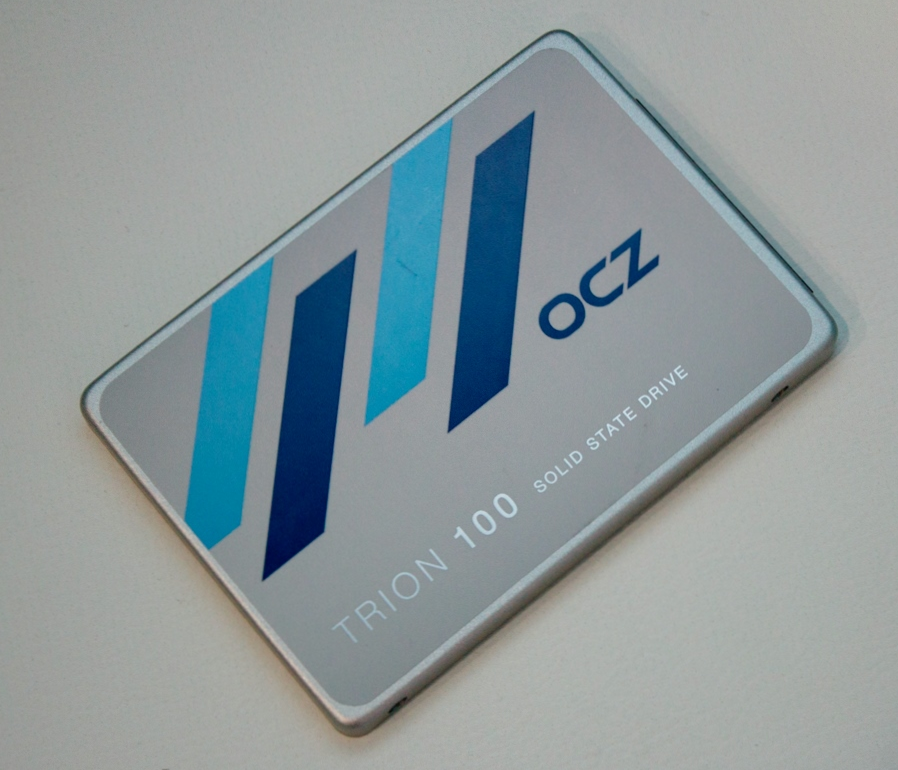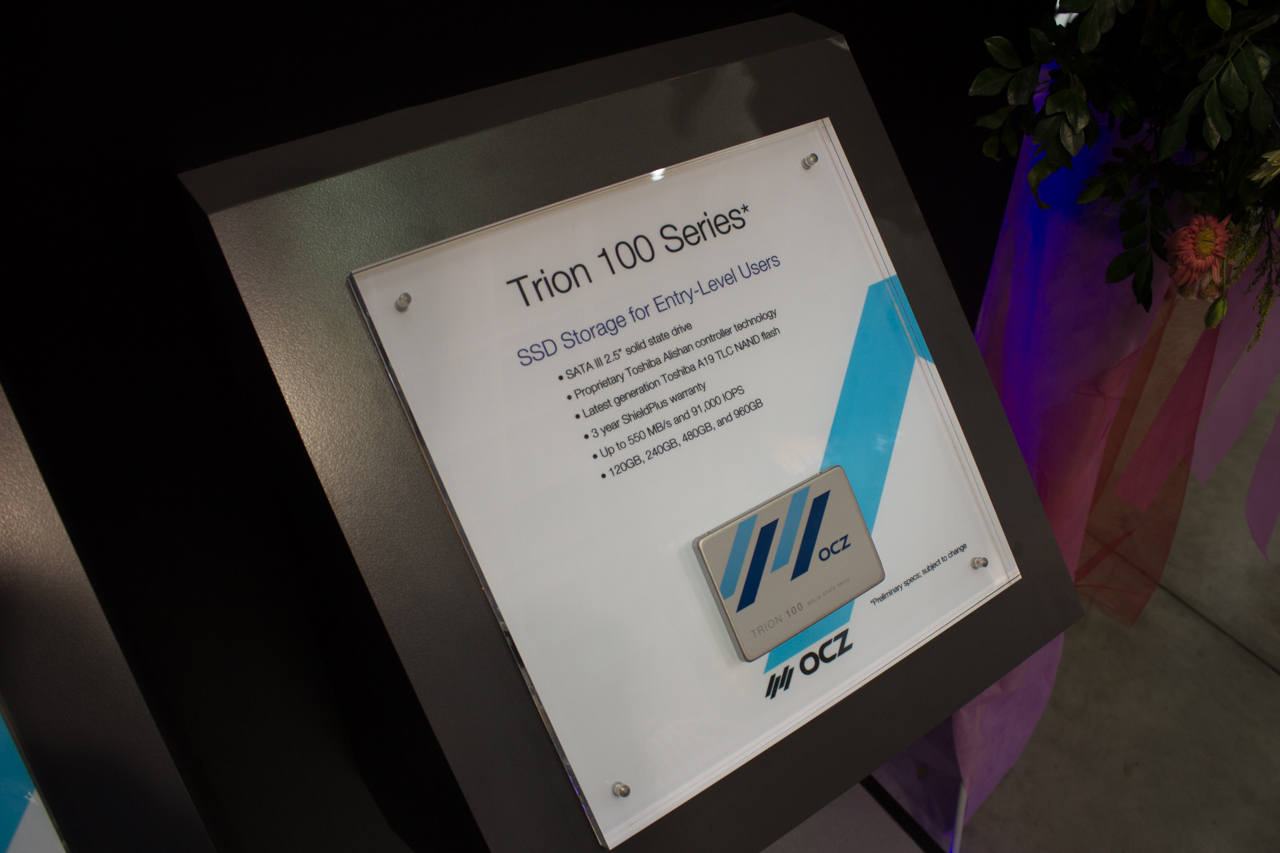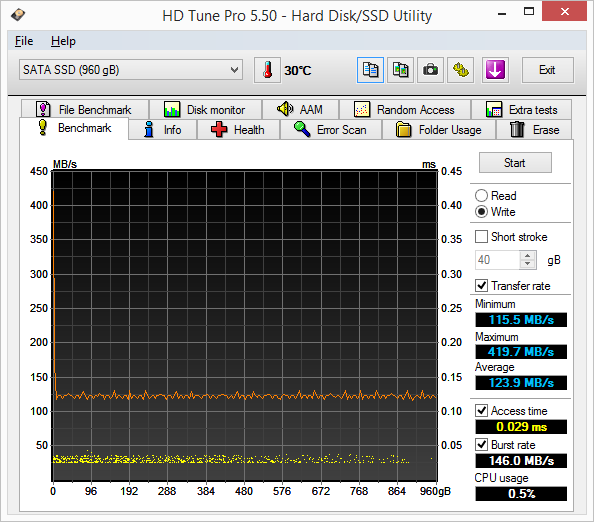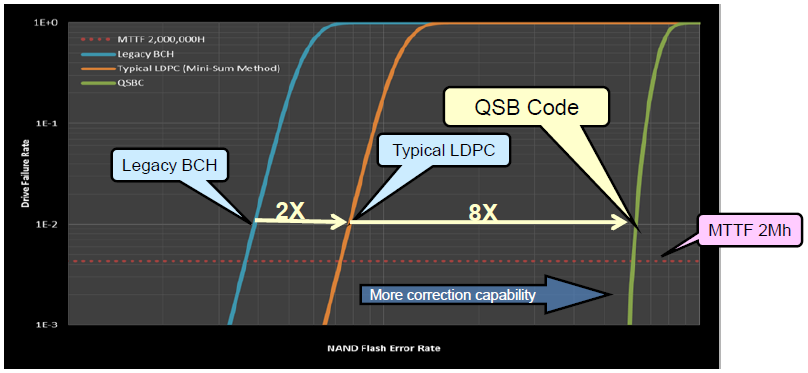OCZ To Deliver TLC-Based Value SATA SSD, The Trion 100
Value-centric large capacity SSDs are on the horizon. OCZ Storage Solutions is in a good position to turn the SSD market on its head as parent company Toshiba finalizes SSD grade TLC NAND flash. Samsung started shipping 3 bit-per-cell NAND (TLC) in the original 840 SSD in October 2012, but the fast track cost the company, which led to higher retail SSD prices than what many expected. Toshiba and Micron spent more time developing TLC and timed production to coincide with advanced ECC technology that ensures mainstream endurance specifications.
Toshiba's Flash Forward NAND manufacturing partner, SanDisk, launched the TLC-based Ultra II SSD last September, but with pricing on par with MLC, the drive brings little value to the market. OCZ has a long history of delivering products at exceptional prices, even before the Toshiba acquisition. With guaranteed access to NAND flash and early priority, we expect OCZ to set the standard for low cost, high capacity SSDs.
There are still two hurdles for SSD manufacturers to overcome with TLC-based SSDs. The first is low sequential write performance once outside of the pSLC cache. The benchmark above is from a future competing product that shows the significant performance drop once the SLC cache layer is full. At that point, all of the data must write at TLC speeds.
We spoke with several companies about the ability to mask native TLC speeds and feel a dynamic cache is the best solution. As users add data to the drive, the pSLC layer will need to shrink, but most large sequential writes come early in the drive's lifespan as users populate the drive with applications and data. Over time, large sequential writes are few and far between, a movie here, a few music files there, but most of us don't move very large files after the initial installation. If SSD makers can hide native TLC performance long enough to get over the initial system setup process for users, then no one will care about lower out-of-burst performance.
The second issue with TLC right now is the program erase cycles. Our sources tell us that Toshiba SSD-grade TLC currently delivers 700 to 1000 P/E cycles before advanced ECC technologies built into the controller extend endurance to higher levels. OCZ's Trion 100 uses Toshiba's proprietary QSBC (Quadruple Swing-By Code) that dramatically improves the correction capabilities compared to LDPC used by other controller makers in upcoming products.
OCZ also has the advantage of working with Toshiba directly to gain deeper insight into the NAND flash. One theme we heard over and over at Computex is that the ability to bin flash from wafers is vital to success with future SSD products. TLC flash comes with a very wide grade scale; some flash is only useful in very low write environments. The percentage of TLC per wafer that can be used in an SSD is actually very low at this time.
Chris Ramseyer is a Contributing Editor for Tom's Hardware, covering Storage. Follow him on Twitter and Facebook.
Get Tom's Hardware's best news and in-depth reviews, straight to your inbox.

Chris Ramseyer was a senior contributing editor for Tom's Hardware. He tested and reviewed consumer storage.
-
apache_lives Samsung or Intel for SSD nothing else, been burnt too many times providing clients with rubbish inferior products from OCZ and suchReply -
alan1476 OCZ has been the one company that brought us SSDs when no one else had anything to offer. I owned OCZ since the Vertex 2 and I still bought the Vector 180, no one issue, now I know I am lucky but, when you take into consideration the market share they once had, you have to understand the more you sell the bigger the return rate. I think now that Toshiba has partnered with them, they are on the fast track to keep up with Samsung and Sandisk in the consumer area. jmhoReply -
3ogdy apache_lives is perfectly right. Actually, you literally expressed my thoughts.Reply
OCZ(I know, Toshiba's company) equals unreliability, poor quality, incredible price / performance at the expense of actual usability or longevity, poor firmware, fast-/first--to-market approach (without having a fully developed product), experiments on clients' money...undetected bugs....it's just a damn mess.
There's absolutely NO REASON for one to put himself / herself through so much stress, frustration, anger and the rest of the stages an OCZ client is susceptible of going through at some point. Neither there is any reason to risk your data in such horrible ways. No, thanks.
There are enough players in the SSD industry whose products we can choose: Intel, Samsung, Kingston, Crucial, Corsair, Plextor, Seagate, PNY....(mostly in that specific order; the first 2 deserve the same spot) and these are off the top of my head. I know people in the know won't fall for the bait, but killing the OCZ brand and converting it into Toshiba would probably be better for OCZ as long as Toshiba has 150% influence on NAND, controllers, software, firmware and all the things OCZ literally sucked.at.
Some of us actually build systems not only for friends and family members, but actually for many more people - imagine the apocalypse using OCZ means when drives start failing due to whatever a paid smart ass at OCZ missed. Then whose reputation and whose data go down the drain? Not OCZ's in a casual customer's eyes - they don't even know who OCZ is. Most have only heard of Microsoft, CrApple, Intel, Sony, HP and Acer from the PC world - and that's also mostly because of laptops or popular software.
Every respectable reviewer in the industry knows exactly this is the case with OCZ. Anandtech wrote:
"It's hard to say what ultimately killed OCZ without knowing their exact cost structure but I believe it was a combination of bad strategy (too many products and high production volumes) and engineering choices (low reliability) along with other things. "
Hell, even Wikipedia has something to say about it."Over 52% return rates"? That's over 1 in 2 SSDs returned for being "too reliable". I can only hope not too many stored irreplaceable memories on such products. -
uglyduckling81 Had 2 OCZ drives, original Agility, and Vetex 2. Awesome drives. Still performing to this day.Reply
A whole lot better that <mod edit> kingston. Bought one of those drives and it was slower than my mechanical drive in just over a week.
Intel are way over priced. Hard to go past sammy drives right now though.
Watch the language. - G -
Cons29 ocz back in the day had unreliable ssd's,sure it was fast but i went to intel that time since it was far more reliable. too much issues with ocz that time.Reply
-
CRamseyer At some point you guys are going to have to press the reset switch and get over it. Yes, the Vertex Series, mainly the SF era had a lot of problems. There were also flash issues with less than desirable NAND and so on.Reply
OCZ's new products use Barefoot 3 controllers and the stuff they are showing now all has Toshiba controllers. Has anyone had an issue with tier 1 Toshiba NAND or Toshiba controllers? Nope, not an issue, they are all good. As a matter of fact, Toshiba makes some of the best client SSDs you've never heard of.
Even as a reviewer I can't tell you the name of Toshiba's channel parts because they all have names like THNSNF512_random_numbers.
It's fine if you want to kick scream and fuss about OCZ's past but at some point you have to let it go. -
nole16k Been using a refurb Vertex 4 for years and couldn't be happier with its performance. Haters just gonna hate I guess.Reply -
skipperkins I actually have a 480gb Toshiba commercial ssd as well as an Intel boot drive, and both have been great. I recently filled all of our office PCs at work with OCZ Arc 100 SSDs (240gb), so we will see how much Toshiba has transformed OCZ's reliability.Reply
I must admit that I have had multiple good experiences with Toshiba SSDs (commerical). -
g-unit1111 Reply15994257 said:At some point you guys are going to have to press the reset switch and get over it. Yes, the Vertex Series, mainly the SF era had a lot of problems. There were also flash issues with less than desirable NAND and so on.
OCZ's new products use Barefoot 3 controllers and the stuff they are showing now all has Toshiba controllers. Has anyone had an issue with tier 1 Toshiba NAND or Toshiba controllers? Nope, not an issue, they are all good. As a matter of fact, Toshiba makes some of the best client SSDs you've never heard of.
Even as a reviewer I can't tell you the name of Toshiba's channel parts because they all have names like THNSNF512_random_numbers.
It's fine if you want to kick scream and fuss about OCZ's past but at some point you have to let it go.
I completely agree, I ran a Vertex 4 for the longest time until I upgraded to a 250GB Samsung 840 Evo. The Vertex4 was a great drive and I still use it on another machine. I'd buy a Vertex 150 for a new machine in half a second.
Samsung or Intel for SSD nothing else, been burnt too many times providing clients with rubbish inferior products from OCZ and such
I'll recommend Samsuing 9 times out of 10. I had an Intel 320 and absolutely hated it, even with a firmware update I still got BSODs left and right. Right now I'm running a Corsair Neutron XT and this is an awesome drive. 480GB and it's been rock solid and stable. I even may ditch the mechanical drive if I feel like it. -
LordConrad I've got no issues with OCZ. I've got two Vertex 2 drives and one Vertex 3, all still working perfectly.Reply
Admittedly, my newer SSDs are all Samsung because I love the Magician software.



